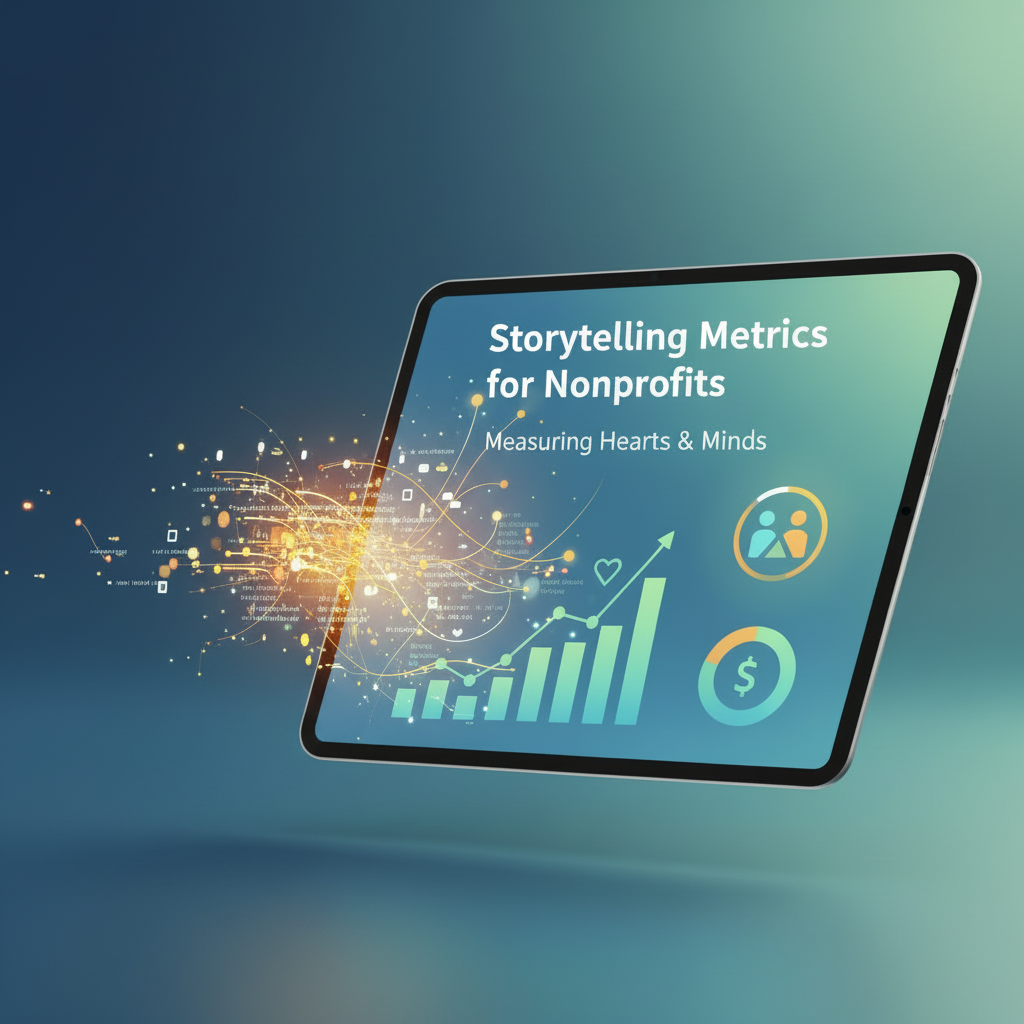From Challenges to Solutions: The ACT on Health Equity Initiative

The ACT on Health Equity Community Solutions Challenge is a vital step towards addressing systemic health disparities in underserved US communities. This initiative, led by AstraZeneca, focuses on dismantling the systemic barriers that prevent equitable access to healthcare. The challenge supports community-based solutions that make a real difference, awarding financial contributions to nonprofits that understand the needs of their local populations.
Here's the quick overview:
- Purpose: Improve health equity through community-driven solutions.
- Funding: Over $3.3 million provided to 46 organizations.
- Approach: Custom initiatives targeting social determinants of health, such as housing and education.
Community-led solutions are key in overcoming the complex challenges of health equity. Program recipients are tackling diverse issues—from addressing prenatal care gaps to providing free transportation for medical care—showcasing the power of localized, innovative approaches.

Understanding the ACT on Health Equity Community Solutions Challenge
The ACT on Health Equity Community Solutions Challenge is a groundbreaking initiative by AstraZeneca. It aims to bridge the health equity gap by supporting community-driven solutions. This challenge is part of a larger effort to transform healthcare by focusing on the social, cultural, and linguistic needs of historically excluded populations.
What sets this challenge apart?
Community-Centric Approach: The challenge empowers local nonprofits to address health disparities through custom programs. These organizations have knowledge of their communities' unique needs, making them well-suited to implement effective solutions.
Significant Funding: Since its inception in 2021, the Community Solutions Challenge has awarded over $2.6 million to more than 100 nonprofit programs. In 2024, up to $1.5 million in funding will be available for new and existing initiatives.
Focus on Social Determinants of Health: Programs funded by the challenge tackle various social determinants of health, such as food security, education, and access to healthcare. By addressing these root causes, the challenge aims to create lasting health improvements.
Spotlight on Success:
We Don't Waste: This nonprofit reduces food insecurity in Denver by redistributing unused food to those in need. Since 2009, they've provided over 200 million servings of food, highlighting the impact of innovative, community-focused solutions.
Samaritan House: Their Food Pharmacy Program helps diabetes patients manage their condition with nutritious foods and education, reducing reliance on medication and promoting healthier lifestyles.
AstraZeneca's commitment to health equity is evident through the challenge's strategic collaborations. Working with organizations like the African American Wellness Project and BlackDoctor Foundation, they improve the reach and effectiveness of their programs. These partnerships ensure that the solutions are culturally responsive and impactful.
The ACT on Health Equity Community Solutions Challenge is more than just funding; it's a catalyst for change. By empowering communities to develop their solutions, AstraZeneca is making strides toward a more equitable healthcare system.
The Importance of Health Equity
Health equity is crucial for ensuring everyone has a fair chance at achieving their best health, regardless of their background or circumstances. It means everyone gets access to the healthcare they need, when they need it, without facing barriers like cost, location, or discrimination.
Equitable Care Access
Access to healthcare should be a right, not a privilege. Yet, many face obstacles like lack of transportation, language barriers, and financial constraints. Programs like Angel Flight West eliminate transportation barriers by providing free air travel for medical needs. Similarly, the ACT on Health Equity Community Solutions Challenge funds initiatives that break down these barriers, ensuring underserved communities receive the care they deserve.
Maternal Health Equity
Maternal health is a critical area where health equity can make a significant difference. Many women, especially in underserved areas, lack access to prenatal and postpartum care. This can lead to complications for both mothers and babies. The challenge supports programs like Advocates for Women’s Health, Inc., which provides prenatal care to low-income women in Fresno, ensuring they receive the support they need for healthy pregnancies.
Postpartum Care
Postpartum care is often overlooked but is essential for the well-being of new mothers. Equitable access to postpartum services can prevent complications and support maternal mental health. The Health Equity Action Plan by HHS emphasizes the importance of extending postpartum Medicaid coverage, highlighting the need for continuous care after childbirth. By supporting initiatives focused on postpartum care, the Community Solutions Challenge aims to improve outcomes for mothers and their families.
In conclusion, focusing on health equity, especially in maternal and postpartum care, can transform lives. By addressing these key areas, the ACT on Health Equity Community Solutions Challenge is paving the way for a healthier, more equitable future.
How the Community Solutions Challenge Works
The ACT on Health Equity Community Solutions Challenge is a powerful initiative that provides funding to nonprofits focused on improving healthcare access and offering community-based support. Here's how it works:
Funding for Nonprofits
In 2023, AstraZeneca awarded over $3.3 million to 46 community organizations through this challenge. Each selected nonprofit receives financial support to implement innovative solutions that address health disparities in underserved populations. For instance, 36 local and regional nonprofits each received $25,000 to tackle issues like food insecurity, housing for families with sick children, and STEM career pathways for youth.
Improving Healthcare Access
The challenge prioritizes removing barriers to healthcare access. For example, Angel Flight West uses its grant to offer free air transportation for medical needs across 12 western states. This service ensures that distance and travel costs don't prevent people from receiving essential care. Similarly, SC Thrive's Connecting Communities to Care program educates South Carolinians about healthcare benefits, helping them enroll and access necessary services.
Community-Based Support
Community organizations are at the heart of the challenge. They understand local needs and can create custom solutions. The Journey to Wellness program, for instance, partners with local health professionals to combat health disparities in the Asian American and Native Hawaiian/Pacific Islander community. By using low-cost screening tools and outreach, they raise health awareness and provide much-needed support.

The ACT on Health Equity Community Solutions Challenge doesn't just fund projects—it empowers communities to lead change. By supporting local initiatives, it ensures that solutions are sustainable and deeply rooted in the communities they serve.
Success Stories and Impact
The ACT on Health Equity Community Solutions Challenge is making a significant impact by addressing the health equity gap and improving community health through strategic partnerships and innovative programs.
Bridging the Health Equity Gap
One success story comes from Advocates for Women’s Health, Inc., which tackles the alarming statistic that nearly 25% of women in south Fresno receive no prenatal care before delivery. Their Lower Income Support Program helps ensure every woman has access to proper prenatal care, regardless of her financial situation. This initiative is vital in closing the health equity gap for underserved women and their babies.
Community Health Improvement
In Pittsburgh, the Outdoor Learning Lab connects underrepresented youth to nature, offering activities like kayaking, hiking, and environmental education. These outdoor experiences promote physical, social, and mental wellness, showing how creative approaches can improve community health.
Another example is We Don’t Waste in Denver, which combats food insecurity by recovering quality, unused food and delivering it to those in need. Since 2009, they have provided over 180 million servings, demonstrating a tangible improvement in community health and well-being.
Data Partnerships
Data partnerships play a crucial role in these success stories. For instance, the Northeast Regional Cancer Center uses data-driven strategies to steer cancer screenings for low-income and underserved individuals. By focusing on education and barrier reduction, they ensure participants are connected to ongoing preventive care, reducing the toll of late-stage cancer diagnoses.
Similarly, Nueva Vida targets the Latino population in Baltimore with bilingual outreach and education, using data to tailor their cancer screening programs. This approach improves early detection and prevention, highlighting how data partnerships can lead to better health outcomes.
These stories showcase the transformative impact of the ACT on Health Equity Community Solutions Challenge. By empowering local organizations, the challenge fosters sustainable change and helps communities overcome health disparities.
Frequently Asked Questions about the ACT on Health Equity Community Solutions Challenge
What is the deadline for the Community Solutions Challenge?
The estimated deadline for the ACT on Health Equity Community Solutions Challenge is June 30, 2025. This date is based on previous grant cycles, so it's a good idea to keep an eye out for any updates. You can set alerts to receive notifications about any changes to the deadline. Learn more about the Challenge's timeline here.
How does the Challenge support nonprofit organizations?
The Challenge provides significant financial support to nonprofit organizations that are working to improve health equity. In 2023, AstraZeneca awarded $25,000 each to 36 local and regional nonprofits, totaling $900,000. This funding helps organizations tackle barriers to healthcare access and address social determinants of health. For example, the funds support initiatives like Angel Flight West, which offers free air transportation for those needing to travel long distances for non-emergency medical care, and Project MEND, which provides refurbished medical equipment to people with disabilities in South Texas.
Additionally, through National Strategic Collaborations, the Challenge allocated $2.4 million to 10 nonprofits to support health equity programming in areas where AstraZeneca has expertise, like asthma and diabetes. This funding enables nonprofits to leverage technology, provide nutrition outreach, and identify suitable donors for transplants and cell therapy, among other efforts.
What are the main goals of the ACT on Health Equity initiative?
The primary goal of the ACT on Health Equity initiative is to eliminate barriers that prevent underserved populations from achieving their best health outcomes. It focuses on improving access, affordability, and outcomes for people in communities that have been historically excluded or disenfranchised. The initiative supports various programs, such as providing prenatal care to low-income women through Advocates for Women’s Health, Inc. and addressing food insecurity with We Don’t Waste. By partnering with community organizations and leveraging data, the initiative aims to create sustainable health improvements and close the health equity gap.
For more details on how these partnerships are making a difference, check out the full list of 2023 recipients on the AZ&You Blog.
Conclusion
Through the ACT on Health Equity Community Solutions Challenge, we see a powerful example of how partnerships can drive meaningful change. At Narratives, we believe in the transformative power of digital storytelling to amplify these efforts. By showcasing the impact of initiatives like the Community Solutions Challenge, we help non-profits share their stories in a way that resonates deeply with audiences.
Our approach isn't just about telling stories—it's about empowering organizations to reach their full potential. By partnering with non-profits, we create multimedia content that not only informs but also inspires action. This approach helps build trust and increases visibility for the causes that matter most.
Digital storytelling is more than a tool; it's a bridge connecting communities, donors, and advocates. By focusing on underrepresented voices, we help ensure that everyone has a seat at the table. Our commitment is to continue supporting these voices through high-quality, emotionally engaging content.
If you're interested in learning more about how we can help your organization share its impact story, explore our services here. Together, let's make a difference, one story at a time.


